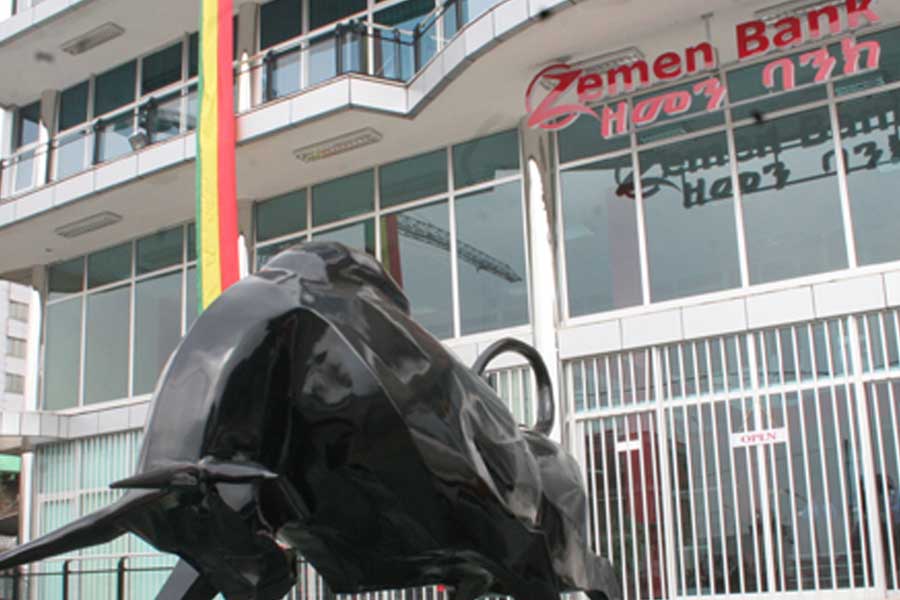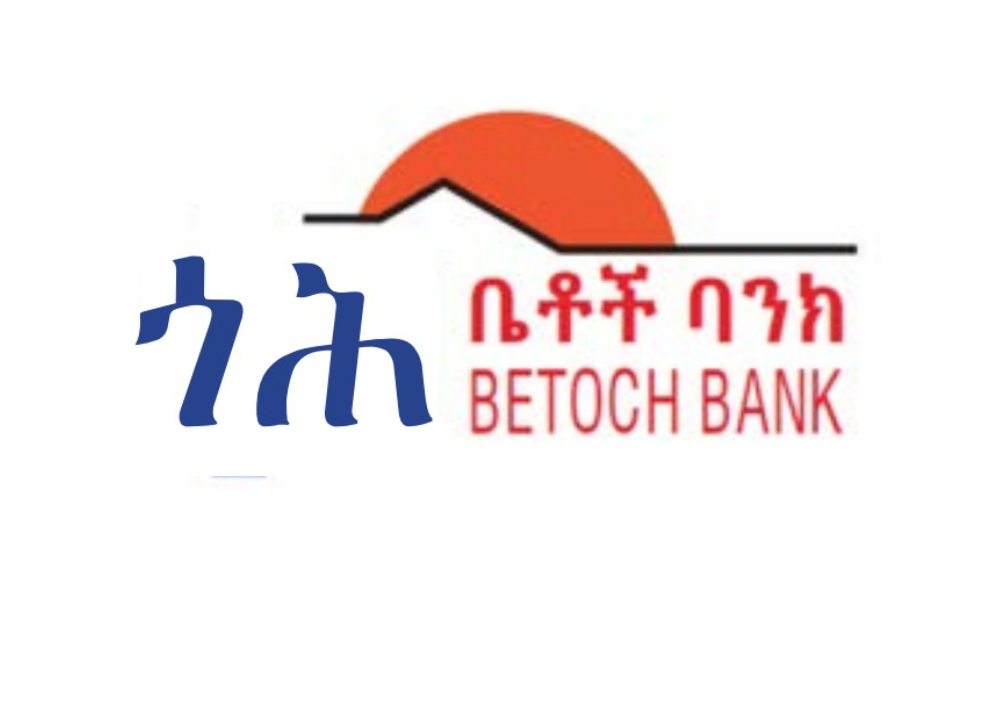
Fortune News | Jul 29,2023
On the afternoon of January 14, 2020, Khadija Mustafa sat on the waiting benches at a branch of one of the private banks located near National Stadium.
She appeared quite restless as she constantly moved in her seat, checking her mobile now and then. She repeatedly walked over to the counter and spoke to the customer service officers several times.
Khadija was displeased by the responses from the tellers. She had been waiting for more than an hour to collect 300,000 Br she urgently needed. However, Khadija, in her mid-20s, could not withdraw her money as she expected.
“I have to withdraw the money today, because I need it,” she lamented, adding that the reason the clerk gave her did not persuade her.
"The clerk told me that he was processing my check, but he blamed the system for going on and off," she said.
Khadija is not the only person affected by this banking issue. Thirty-year-old Girma Bonkola, who works at a parking lot, experienced a similar problem recently.
After the Ethiopian Christmas, Girma went to the same branch where Khadija was trying to withdraw 40,000 Br, which was sent to him by his brother from his hometown of Hosana. But he could not get service at the time either, since the teller told him that the system was down to process his transaction.
"I was very disappointed about not getting the money on time," Girma told Fortune.
Since the middle of November, most of the commercial and private banks in the country have faced a shortage of cash and are having difficulty in processing transactions that involve larger sums of money.
Usually, from October to February, there is a shortage of cash in the banking industry since the period is known for being a tax season on top of the banks paying dividends to their shareholders.
Bank executives state that they have been facing a liquidity crunch for the past two months. Even though liquidity issues occasionally happen in the industry, the latest one is more severe.
"We currently can pay no more than half a million Birr to each customer," said a clerk at United Bank's Safari branch located on the road from CMC Square to Safari traffic light.
Clerks count cash to make a transaction at one of the private banks located in the capital.
If a customer requests a large amount, the branch waits until the money is deposited or sends the customer to collect the rest of the money from other branches located nearby, according to him.
A senior bank executive working at Bank of Abyssinia says that the issue is directly related to the current harvest season.
"Most of the money is in areas like Gambella, Gonder and Humera that produce cash crops," he said. "The farmers there make the transactions with cash."
To alleviate the issue, his bank started collecting cash from its branches located the cash crop areas starting from the end of November.
"We collect from 20 million Br to 50 million Br every two days,” he said.
The Bank is not only collecting money from the cash crop areas but also from its branches located near Merkato, the largest open market in the capital, which relatively has more cash and disperses it to other branches that are short of cash.
Abie Sano, president of Oromia International Bank and chairperson of the Ethiopian Bankers Association, does not see how the yearly harvest season can cause the shortage.
“During the harvest time, it is obvious that the cash will flow to farmers,” Abie argues.
But Abie believes that the main reason that caused the shortage of cash is that the government did not disperse money into the economy quickly enough after collecting taxes from the public.
"The government also decreased its expenditure on projects, causing a shortage of cash in the economy," he said. "The banking system is not electronic, and people still need cash to make transactions, which contributes to the shortage."
Due to the cash crunch, banks are facing challenges in settling payments and clearing checks among themselves. Over one billion Birr worth of checks is waiting to be cleared at Commercial Bank of Ethiopia's Finfine head office.
However, Yeabsera Kebede, CBE's corporate communications acting director, denies this, saying the shortage is due to higher visits at the specific branch, creating backlogs.
"Since the Bank has dedicated vehicles that transport cash from the main office to the branches," said Yeabsera, "we didn’t face a shortage."
The current cash crunch has already created a significant impact on Wegagen Bank, since this is the time of year the Bank pays dividends to shareholders, according to Kindie Abebe, vice president of corporate service at Wegagen.
Kindie also says that most of the loans and advances are injected into agriculture, especially to coffee and sesame farmers.
"So most of the cash directly went to the countryside," Kindie said.
He also explains that due to continuous depreciation of the Birr, exporters are holding their products, decreasing the amount of cash that is transacted in the economy.
Even though the central bank requires banks to maintain liquid assets of no less than 15pc of their net current liabilities, the level went as low as 10pc at some of the banks recently. In the last fiscal year, the banks' liquidity ratio stood at 17.2pc, registering a percentage point growth from the preceding year.
Due to this, the banks find the shortage unbearable.
Kindie of Wegagen also says that the issue will not be solved unless the government intervenes to control the situation.
The National Bank of Ethiopia (NBE) has also recognised the problem and availed a total of 14.5 billion Br worth of loans to the cash-strapped banks recently.
At the end of December, the central bank lent 5.5 billion Br to all of the 16 private banks at a competitive bidding interest rate. The maximum interest rate offered by the desperate banks was 15.29pc, while the minimum was nine percent. The winning weighted-average interest rate at the time was 10.6pc.
Since the loan did not alleviate the problem, the central bank availed nine billion Birr worth of additional loans to the banks two weeks ago. Having a maturity period of a month, the loan was disbursed to 12 of the 16 banks.
On January 18, 2018, Yinager Dessie (PhD), the governor of the central bank, also called all of the presidents and board chairpersons of the banks for a meeting to discuss how to manage the current liquidity levels.
The governor also stated he would have weekly meetings with the banks that have an alarming liquidity crisis until their liquidity ratio is corrected and reaches the required level.
Abdulmenan Mohammed, a financial statement analyst who closely follows the financial reports of banks, said that the liquidity crunch at the banks was expected.
Most of the private banks were operating in tight liquidity conditions in the last year, according to Abdulmenan, who was interviewed by Fortune last month.
"Last year, the loan-to-deposit ratio of most of the banks increased," he said. "There were some private banks whose loan-to-deposit ratio exceeded 70pc."
In the last fiscal year, the average loan-to-deposit ratio of both private and state banks was 58.7pc in the previous fiscal year, which was three percentage points higher than the prior year.
Kindie also believes that ceasing the approval of new loans can also be a remedy.
“Currently, we stopped providing additional loans and focused on collecting the dispersed loans," Kindie said, adding that his bank is taking short-term loans from the central bank.
Alemayehu Geda (Prof.), a prominent macroeconomist and university lecturer, argues that the government does not actually cut the broad money supply; instead, it injects cash into the economy.
By the end of the last fiscal year, the broad money supply in the economy stood at 886.8 billion Br, registering a 19.7pc growth from the previous year.
Alemayehu also says that the problem is temporary and will not cause insolvency. He expects it to be solved shortly, since the 27pc mandatory bill purchase that was imposed on private banks when they disbursed loans or advances was lifted.
"The economy will be supplied with more cash," Alemayehu says.
To solve the problem permanently, according to Abie, the tax season should be pushed later than February to avoid overlap with the harvest season.
PUBLISHED ON
Jan 25,2020 [ VOL
20 , NO
1030]

Fortune News | Jul 29,2023

Fortune News | Aug 16,2020

Verbatim | Jun 17,2023

Commentaries | Oct 03,2024

Fortune News | Mar 25,2023

Fortune News | Mar 30,2024

Fortune News | Dec 09,2023

Fortune News | Jan 09,2021

Fortune News | Dec 26,2020

Fortune News | May 23,2021

Dec 22 , 2024 . By TIZITA SHEWAFERAW
Charged with transforming colossal state-owned enterprises into modern and competitiv...

Aug 18 , 2024 . By AKSAH ITALO
Although predictable Yonas Zerihun's job in the ride-hailing service is not immune to...

Jul 28 , 2024 . By TIZITA SHEWAFERAW
Unhabitual, perhaps too many, Samuel Gebreyohannes, 38, used to occasionally enjoy a couple of beers at breakfast. However, he recently swit...

Jul 13 , 2024 . By AKSAH ITALO
Investors who rely on tractors, trucks, and field vehicles for commuting, transporting commodities, and f...

Oct 18 , 2025
The political establishment, notably the ruling party and its top brass, has become p...

Oct 11 , 2025
Ladislas Farago, a roving Associated Press (AP) correspondent, arrived in Ethiopia in...

Oct 4 , 2025
Eyob Tekalegn (PhD) had been in the Governor's chair for only weeks when, on Septembe...

Sep 27 , 2025
Four years into an experiment with “shock therapy” in education, the national moo...